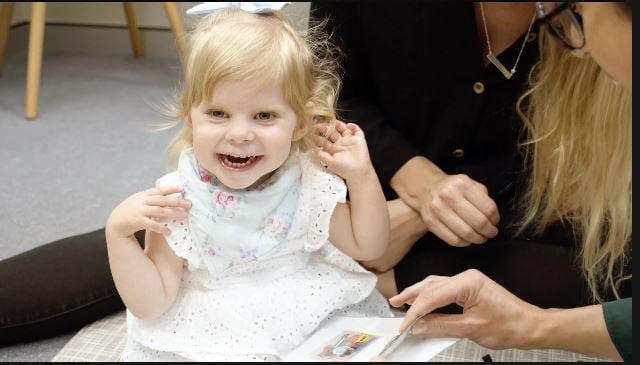Search
Showing results for "Adhd"
Research
Parent experiences of their children’s diagnosis with autism, attention deficit hyperactivity disorder, or both conditionsA comparison of parents’ experiences of getting a diagnosis for their child with autism, attention deficit hyperactivity disorder (ADHD) and both diagnoses can inform our understanding of common and unique themes across these neurodevelopmental conditions.
Research
Wellbeing of breastfeeding women in australia and new zealand during the covid‐19 pandemic: A cross‐sectional studyDuring the COVID-19 pandemic, breastfeeding women have experienced restricted access to support, placing them at increased risk of mental health concerns and limited breastfeeding assistance. This study investigated the effect of the pandemic on feeding choices and maternal wellbeing amongst breastfeeding mothers living in Australian and New Zealand. We conducted a cross-sectional online survey that examined feeding methods, maternal mental wellbeing, worries, challenges, and positive experiences during the pandemic.
Research
Influence of maternal and infant technology use and other family factors on infant developmentSteve Desiree Zubrick Silva FASSA, FAAMHS, MSc AM PhD MBBS, FRACP, MPH, PhD Honorary Emeritus Research Fellow Co-Head, ORIGINS 08 6319 1409
Research
Neurodivergence, intersectionality, and eating disorders: a lived experience-led narrative reviewAutistic people and those with attention deficit hyperactivity disorder are at a high risk of developing an eating disorder. While there is limited evidence on the relationship between other forms of neurodivergence and eating disorders, research suggests associations between giftedness, intellectual disability, obsessive-compulsive disorder, psychosis, Tourette's syndrome, and disordered eating.

Communicating with and Understanding your Baby
Research
“Coronavirus Changed the Rules on Everything”: Parent Perspectives on How the COVID‐19 Pandemic Influenced Family Routines, Relationships and Technology Use in Families with InfantsThis study explores how the first wave of the COVID‐19 pandemic influenced family routines, relationships and technology use (smartphones and tablet computers) among families with infants. Infancy is known to be an important period for attachment security and future child development, and a time of being susceptible to changes within and outside of the family unit.
Research
The impact a Mediterranean Diet in the third trimester of pregnancy has on neonatal body fat percentageMaternal diet during pregnancy has long been recognised as an important determinant of neonatal outcomes and child development. Infant body composition is a potentially modifiable risk factor for predicting future health and metabolic disease.
Research
Newborn Nasal Sampling Evaluation (NOSE) StudyA pilot study to assess recruitment and nasal sampling in newborns.
Research
Perinatal Women’s Perspectives of, and Engagement in, Digital Emotional Well-Being Training: Mixed Methods StudyPsychological distress in the early postpartum period can have long-lasting deleterious effects on a mother's well-being and negatively affect her infant's development. Intervention approaches based in contemplative practices such as mindfulness and loving-kindness and compassion are intended to alleviate distress and cultivate well-being and can be delivered effectively as digital mental health interventions.
Research
‘There’s good and bad’: parent perspectives on the influence of mobile touch screen device use on prenatal attachmentThe potential for human-computer interaction to have a substantial impact on adults is well documented. However, its potential importance prior to birth has rarely been reported. Parental use of smartphones and tablet computers could influence the relationship between parent and baby during pregnancy (prenatal attachment) and thus child development.
